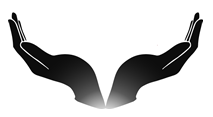.: NUTRITHERAPY

Nutritherapy is a method that establishes a personalized dietary program, drawn up after a complete assessment of an individual’s state of health. This program takes into account problems such as high cholesterol, hypoglycemia, digestive disorders and constipation. Specialists in this approach also intervene to help those suffering from overweight or underweight, as well as circulation problems or water retention.
The body’s basic needs
Just as a plant needs water, light and minerals to thrive, our bodies require a nutrient-rich diet to function optimally. Fiber, water and protein are essential for a healthy metabolism. When the body receives the necessary elements, it avoids retaining what is superfluous. This means that a person can feel like they’re eating well while putting on weight if their diet doesn’t provide the essential components.
For example, people who eat only one light meal a day, such as a small salad or a piece of fruit, may not ingest enough calories or nutrients, leading to imbalances. By providing a variety of healthy foods, the body can regulate itself naturally.
The nutritherapy approach
This method is very different from a traditional diet. Unlike often restrictive diets, nutritherapy teaches individuals to eat in a balanced and sustainable way. Patients learn to integrate healthy food choices into their daily routine, thus fostering good long-term habits and preventing the yo-yo phenomenon associated with temporary diets.
The aim is not just to reduce weight, but to transform one’s relationship with food. This approach encourages awareness of body signals, enabling individuals to better understand their dietary needs.
Rapid changes
Within the first few weeks of the program, several improvements can be observed:
- Reduced sugar cravings: a more balanced diet reduces cravings, allowing greater control over choices.
- Increased energy: patients often notice a boost in energy and general well-being, as their bodies receive the nutrients they need.
- Regular bowel movements: the right diet promotes healthy digestion, resulting in more regular bowel movements.
- Reduced bloating: many patients report a reduction in feelings of heaviness after meals.
- Increased hydration: by focusing on water, individuals develop an increased desire to hydrate, essential for optimal functioning.
- Progressive weight loss: weight reduction takes place in a harmonious way, affecting various areas of the body, rather than focusing solely on the parts that are easy to lose.
Target audience
Nutritherapy in Geneva is aimed primarily at three categories of people:
- Those wishing to learn how to eat healthily: many are looking to re-educate their diet and make informed choices.
- Those who want to reduce their weight: the program is designed to promote sustainable weight loss by balancing nutritional intake.
- Those looking to gain weight: for those who find it difficult to achieve a healthy weight, tailored solutions are proposed.
In Switzerland, individuals can expect to lose around one kilogram a week, an approach considered healthy and sustainable.
Reimbursement and precautions
In Switzerland, many complementary health insurance companies cover nutritherapy consultations. This requires a doctor’s prescription for specific health problems, such as high cholesterol or digestive disorders. This approach underlines the importance of collaboration between doctors and alternative health practitioners. It allows for personalized care. This synergy promotes appropriate medical follow-up. It also contributes to the development of adapted dietary programs, improving patients’ overall well-being.
Please note: people suffering from acute digestive or dietary problems should consult a registered dietician. This professional has the necessary training to offer advice adapted to complex situations.
